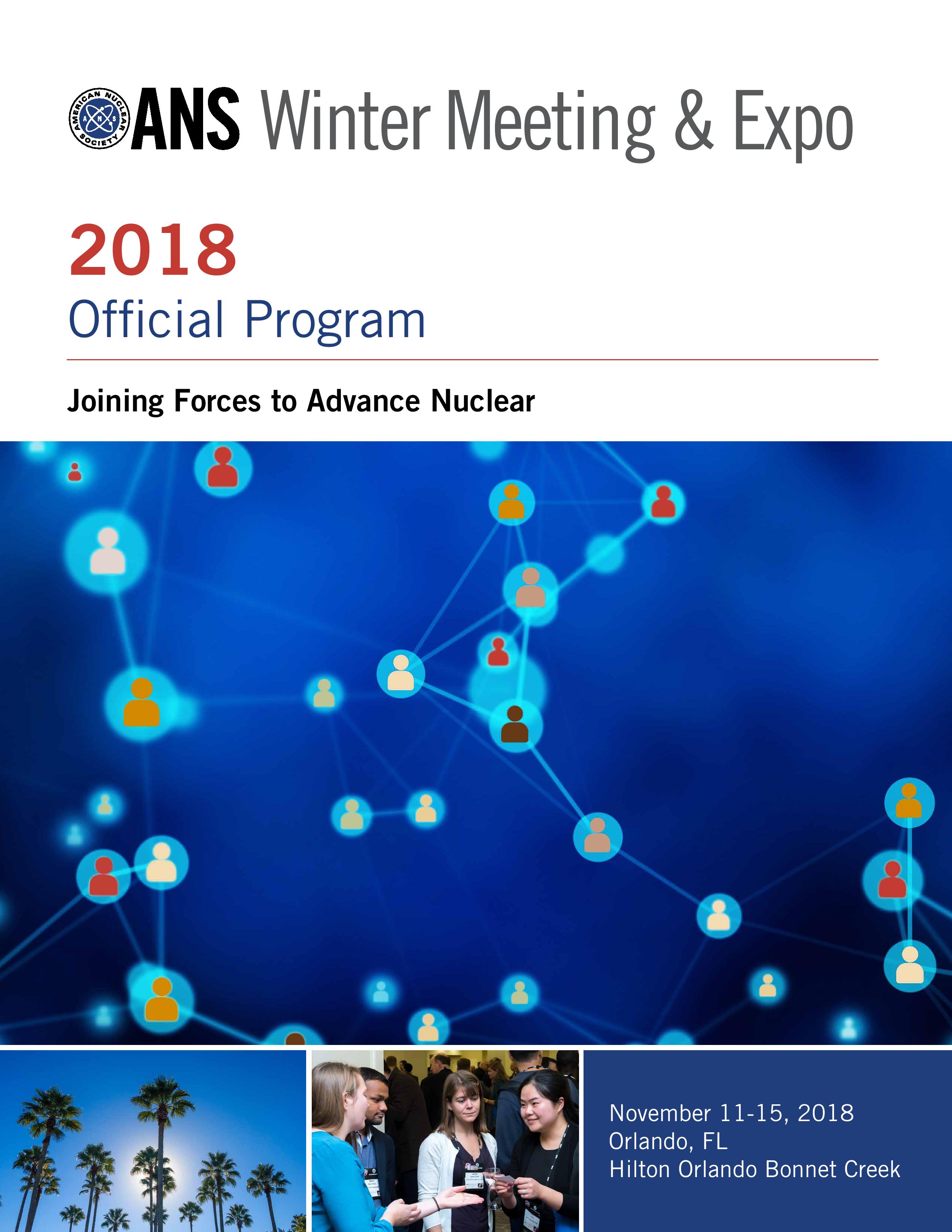Meetings
ANS 2018 Winter Meeting
Orlando, FL • November 11-15, 2018
NCS Implementation Programs–Panel – Mon. pm
Session Organizer: Christopher F. Haught (CNS) Chair: Tyler C. Lovelace (CNS)
This session addresses programs for implementation and maintenance of nuclear criticality safety (NCS) controls,
including the use of criticality safety officer (CSO) staff positions. Responsibility for nuclear criticality safety ultimately lies with the personnel that conduct fissile material activities. A healthy NCS program includes integration of multiple organizations to assure a clear understanding of the process evaluation and proper implementation of NCS controls. ANSI/ANS-8.19 outlines criteria for implementation and maintenance of NCS controls. Some sites use formal CSO programs within the operating organization with a primary staff duty of implementing NCS requirements and resolving NCS compliance issues. Other sites have assigned implementation responsibilities as collateral duties. This session is to share information from several sites on their programs for implementation and maintenance of NCS controls.
Panelists: Deb Hill (NNL), David Erickson (SRS), Larry Wetzel (BWXT), Todd Taylor (INL), James Kuropatwinski (LANL), Preston Carroll (Y-12), George McGehee (Westinghouse)
ENDF/B-VIII.0: Evaluation and Validation–Panel – Mon. pm
Session Organizer and Chair: Michael L. Zerkle (NNL)
This panel will discuss the new nuclear data evaluations included in ENDF/B-VIII.0 and the work completed to date on validation of the latest major release of the U.S. national ENDF/B nuclear data library. Emphasis will be on fast and resonance evaluations, covariance data, thermal scattering law evaluations, and validation.
Panelists: David Brown (BNL), Mike Herman (BNL), Roberto Capote Noy (IAEA), Ayman Hawari (NCSU)
Recent Nuclear Criticality Safety Program Technical Accomplishments – Mon. pm
Session Organizer: Lori Scott (NCSP) Cochairs: Angela Chambers (NNSA), Douglas G. Bowen (ORNL)
- Kilopower Reactor Using Stirling TechnologY (KRUSTY) Update: Cold Critical Experiments, Rene Sanchez, Travis Grove, David Hayes, Joetta Goda, George McKenzie, Jesson Hutchinson, Theresa Cutler, John Bounds, Jessie Walker (LANL)
- Thermal Epithermal eXperiments (TEX) with Plutonium Zero Power Physics Reactor (ZPPR) Plates First Critical Preliminary Results, C. M. Percher, S. S. Kim, D. P. Heinrichs (LLNL), R. G. Sanchez, T. J. Grove, Jesson Hutchison, Theresa Cutler, George McKenzie (LANL)
- Qualification of Y-12 Legacy Criticality Accident Alarm System Detectors, Chris Haught, Chris Woodrow, Troy McMillen (Consolidated Nuclear Security)
- Impact of the Dynamic Structure Factor on Doppler Broadening for 238U in UO2, N. C. Sorrell, A. I. Hawari (NCSU)
- A Testing Trifecta: Data, Codes, and Evaluations, W. J. Marshall, A. M. Holcomb (ORNL)
- CURIE Preliminary Design, T. Cutler, R. Bahran, J. Hutchinson, M. Rathbun, D. Fritz (LANL)
- Computational Optimization of TEX Critical Experiment Design, Jesse Norris, William Zywiec, Anthony Nelson, Catherine Percher, David Heinrichs (LLNL)
Data, Analysis, and Operations in Nuclear Criticality Safety—I – Tues. am
Session Organizer: Theresa E. Cutler (LANL) Chair: Natasha N. Glazener (LANL)
- Release and Distribution of ENDF/B-VIII.0-Based ACE Files, Jeremy Lloyd Conlin, Wim Haeck, Denise Neudecker, Kent Parsons, Morgan C. White (LANL)
- ENDF/B-VIII.0: The 8th Major Release of the ENDF/B Library, D. A. Brown (BNL)
- An Overview of the Status of Lead Evaluations in ENDF/B-VIII.0 and JEFF 3.3, Vladimir Sobes (ORNL), Luiz Leal (IRSN)
- Verification of MCNP6.2 for Nuclear Criticality Safety Applications, Forrest B. Brown, Michael E. Rising, Jennifer L. Alwin (LANL)
Data, Analysis, and Operations in Nuclear Criticality Safety—II – Tues. pm
Session Organizer: Theresa E. Cutler (LANL) Chair: William J. Marshall (ORNL)
- Inventory-Based Computational Analysis of Hanford Tank Waste, Alyssa R. Kersting, David C. Losey (Washington River Protection Solutions)
- Validation of Scale 6.2 Using Tsunami for Swedish Spent Nuclear Fuel, Fredrik Johansson (Swedish Nuclear Fuel and Waste Management)
- Update on the Use of Neutron Absorbers for Storage Applications at Y-12, Joshua Schwartz (Consolidated Nuclear Security)
- Application of the Limiting Surface Density Method to Arrays of 9975 Shipping Packages with Plutonium Oxide, James Baker (SRNL)
- Concurrent Uranium Overmass and Hydraulic Fluid Leak, J. J. Lichtenwalter, T. L. Wilson (Consolidated Nuclear Services)
Data, Analysis, and Operations in Nuclear Criticality Safety—III – Thurs. am
Session Organizer: Theresa E. Cutler (LANL) Chair: Sandra L. Larson (21CGI)
- Moderator Evaluation of Non-Water Hydrogenous Materials, Lewis T. Kotredes, Isaac J. Bratton, Christian Erk, Daniel P. Harris (Naval Nuclear Lab)
- Neptunium Sphere Subcritical Observation (NeSO) Final Experiment Design Update, Alex McSpaden, Theresa Cutler, Rian Bahran, Jesson Hutchinson (LANL)
- Additive Manufacturing Applications in Nuclear Criticality Safety, Marsha L. Bartholomay (Y-12)
- Sensitivity Calculations for Systems with Fissionable Reflector Materials Using TSUNAMI, W. J. Marshall, J. B. Clarity, E. M. Saylor (ORNL)
- Development of a First-Principles Hydrogen Vibrational Spectrum in Liquid H2O, Andrew Antony, Ayman I. Hawari (NCSU)
Critical and Subcritical Experiments—I – Tues. pm
Session Organizer: Jesson D. Hutchinson (LANL) Chair: David K. Hayes (LANL)
- Genetic Algorithm-Based Optimization for Nuclear Criticality Experiment Design, A. Ney, D. Fritz, S. Singh, N. Langlitz (RPI)
- 2-Exponential PDF and Analytic Uncertainty Approximations for Rossi-α Histograms, M. Y. Hua (Univ. Michigan & LANL), J. D. Hutchinson, G. E. McKenzie, M. A. Nelson (LANL)
- Sensitivity Analysis and Uncertainty Quantification of the Feynman Y and Sm2, Alexander Clark (NCSU), Jeffrey A. Favorite, Alexander McSpaden, Mark Nelson (LANL)
- Comparison of Predicted and Measured Subcritical Benchmark Uncertainties as a Function of Counting Time, J. Hutchinson, J. Arthur, R. Bahran, T. Cutler, T. Grove, A. McSpaden, M. Nelson (LANL)
- Bayesian Optimization for Subcritical Benchmark Design, Jennifer Arthur (LANL & Univ. Michigan), Rian Bahran, Jesson Hutchinson (LANL), Sara Pozzi (Univ. Michigan)
Critical and Subcritical Experiments—II – Wed. pm
Session Organizer: Jesson D. Hutchinson (LANL) Chair: William L. Myers (LANL)
- Preliminary Benchmark Analysis of Component Critical Configuration of Kilowatt Reactor Using Stirling Technology (KRUSTY), Kristin Smith (Texas A&M), Jesson Hutchinson, Theresa Cutler, Rene Sanchez (LANL)
- Prompt Neutron Decay Constant Measurements on the KRUSTY Cold Critical Configuration, George McKenzie, John Bounds, Theresa Cutler, Travis Grove, David Poston, Rene Sanchez (LANL)
- The Zeus Assembly on Comet: Past, Present, and Future Benchmarks, T. Cutler, R. Bahran, J. Hutchinson, J. Goda, J. Bounds, G. Mckenzie, R. Sanchez, D. Hayes, B. Myers (LANL)
- Identifying Gaps in Critical Benchmarks, Nicholas Thompson (LANL & IRSN), Rian Bahran, Jesson Hutchinson (LANL)
- Updating the Godvia-IV Benchmark, Victoria Hagopian, Joetta Goda, Jesson Hutchinson, Robert Kimpland, George McKenzie (LANL)
Hand Calculation Methodology and Use–Panel – Wed. am
Session Organizers: James C. Bunsen (LANL), Jerry Hicks (DOE, retd.) Chair: James C. Bunsen (LANL)
A workshop on hand calculations for those interested in criticality safety will be given at the ANS 2018 Winter Meeting in conclusion to the Nuclear Criticality Safety Division’s annual Membership Challenge. Solutions to the challenge and suggested methods on best completing the challenge will be discussed. Hand calculations have been used in the criticality safety profession for years to analyze processes with fissionable material to ensure subcriticality. There are multiple methods of hand calculations to use, with two main categories dependent upon the situation: single unit methods and array methods. Single unit methods include diffusion theory, core density conversions, and buckling. The primary array methods used are surface density, density analog, limiting surface density, and solid angle methods.
Panelists: James Bunsen (LANL), Jerry Hicks (DOE, retired)
New Code Developments for Nuclear Criticality Safety Applications – Wed. pm
Session Organizer and Chair: Luiz Carlos Leal (IRSN)
- Evaluating the MCNP6.2 Correlated Fission Multiplicity Models for Criticality Calculations, Daniel Timmons (Univ. New Mexico & LANL), Michael E. Rising (LANL), Anil K. Prinja (Univ. New Mexico)
- A Case Study in the Application of TSUNAMI-3D – Part 3, Continuous Energy – Iterative Fission Probability Method, E. L. Jones (U.T., Knoxville), J. B. Clarity, W. J. Marshall, B. T. Rearden (ORNL), G. I. Maldonado (ORNL & U.T., Knoxville)
- SCALE Resonance Parameter Sensitivity Coefficient Calculations, Christopher M. Perfetti (Univ. New Mexico), Vladimir Sobes, Andrew M. Holcomb, Dorothea Wiarda, Mark L. Williams, Bradley T. Rearden (ORNL)
- Towards a Better Thermal Neutron Scattering Law Generation: oClimax + NJOY2016, Kemal Ramíc, Carl Wendorff, Jinghua Feng, Yaron Danon, Li (Emily) Liu (RPI)
- An OpenFOAM Solver for Criticality Safety Assessment in Dynamic Compression Events, Eric Cervi, Stefano Lorenzi, Lelio Luzzi, Antonio Cammi (Politecnico di Milano)
- SENSMG: A New Tool for Multigroup Discrete Ordinates Sensitivity Analysis for Criticality, Jeffrey A. Favorite (LANL)
ANS-8 Standards Forum – Thurs. am
Session Organizer and Chair: Douglas G. Bowen (ORNL)
Session Title: “ANS-8 Standards Forum”
Session Type: Discussion
Session Organizer: Doug Bowen (ORNL)
Summary: Subcommittee ANS-8, Operations with Fissile Material Outside Reactors, meets to discuss various technical and administrative aspects of the approximately 20 national consensus standards under its purview. In addition to status and progress updates by representatives of individual working groups, formal presentations on the technical bases of numerical values such as subcritical limits and experiences with applications of particular standards are solicited. Agenda topics such as new and expanded standards are also encouraged.
Session Title: “Recent Nuclear Criticality Safety Program Technical Accomplishments”
Session Type: Contributed Papers
Session Organizer: Lori Scott (SAIC)
Summary: The Nuclear Criticality Safety Program (NCSP) has been doing interesting technical work supporting the DOE criticality safety enterprise, as well as benefiting the nuclear community as a whole. There are few opportunities to learn about these efforts since they cannot all be presented at an ANS meeting. However, an NCSP Technical Seminar was held. The goal of this seminar was to have each NCSP Task Manager present their technical results from FY 2018. Specifically, the presentations provided a summary of: the work that was done; why the work was done; and who benefited from the work or could potentially benefit across the DOE as well as the nuclear complex. This led to an opportunity for the NCSP to showcase outstanding NCSP technical accomplishments and as a result, the best technical results that will have the most benefit to the nuclear community as a whole have been compiled and those presenters will provide these technical results at the 2018 ANS Winter Meeting.
Session Title: “Criticality Safety Officers Programs”
Session Type: Panel
Session Organizer: Chris Haught (CNS)
Summary: This session addresses programs for implementation and maintenance of Nuclear Criticaity Safety (NCS) controls, including the use of Criticality Safety Officer (CSO) staff positions. Responsibility for nuclear criticality safety ultimately lies with the personnel that conduct fissile material activities. A healthy NCS program include integration of multiple organizations to assure a clear understanding of the process evaluation and proper implementation of NCS controls. ANSI/ANS-8.19 outlines criteria for implementation and maintenance of NCS controls. Some sites use formal CSO programs within the operating organization with a primary staff duty of implementing NCS requirements and resolving NCS compliance issues. Other sites have assigned implementation responsibilities as collateral duties. This session is to share information from several sites on their programs for implementation and maintenance of NCS controls.
Session Title: “ENDF/B-VIII.0: Evaluation and Validation”
Session Type: Panel
Session Organizer: Michael Zerkle (NNL)
Session Co-sponsors: RPD
Summary: With the planned release of ENDF/B-VIII.0, this session will provide a panel discussing new nuclear data evaluations included in ENDF/B-VIII.0 and the work completed to date on validation of the next major release of the US national nuclear data library. Emphasis will be on fast and resonance evaluation, covariance data, thermal scattering law evaluations, and validation.
Session Title: “New Code Developments for Nuclear Criticality Safety Applications”
Session Type: Contributed Papers
Session Organizer: Luiz Leal (IRSN), Vladimir Sobes (ORNL)
Session Co-sponsors: MCD, RPD
Summary: The purpose of this session is to address new developments in computational methodologies in support of nuclear criticality safety calculations. For the past several decades, there have been software advances to solve problems in connection with criticality safety. The new improvements leverage computer resources not available in the past. Nuclear data evaluations tools, Monte Carlo and deterministic neutron transport codes have achieved a high degree of maturity allowing for better interpretation of the benchmark results and systematic propagation of nuclear data uncertainty. This session will highlight how the code developments impact and improve nuclear criticality safety calculations.
Session Title: “Critical and Subcritical Experiments”
Session Type: Contributed Papers
Session Organizer: Jesson Hutchinson (LANL)
Session Co-sponsors: NNPD, YMG
Summary: Critical and subcritical experiments are performed every year to support a variety of national security missions, including nuclear nonproliferation, counter-proliferation, criticality safety research and development, nuclear emergency response, and a variety of hands-on training. Papers on critical and subcritical experiments (design, measurement, analysis, methods) will showcase current work in this area.
Session Title: “Data, Analysis and Operations in Nuclear Criticality Safety”
Session Type: Contributed Papers
Session Organizer: Theresa Cutler (LANL)
Confirmation Number: Summary: The purpose of this session is to provide a forum for timely presentation of general issues in the area of nuclear criticality safety that are not covered in other special session topics.
Session Title: “Hand Calculation Methodology and Use”
Session Type: Panel
Session Organizer: Jerry Hicks (NNSA, retd), James Bunsen (LANL)
Session Co-sponsors: YMG
Summary: A workshop on hand calculations for those interested in criticality safety will be given at the ANS 2018 Winter Meeting in conclusion to the Nuclear Criticality Safety Division’s annual Membership Challenge. Solutions to the challenge and suggested methods on best completing the challenge will be discussed. Hand calculations have been used in the criticality safety profession for years to analyze processes with fissionable material to ensure subcriticality. There are multiple methods of hand calculations to use and two main categories dependent upon the situation: single unit methods and array methods. Single unit methods include diffusion theory, core density conversions, and buckling. The primary array methods used are surface density, density analog, limiting surface density and solid angle method.
 Loading...
Loading...
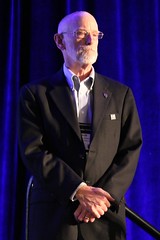
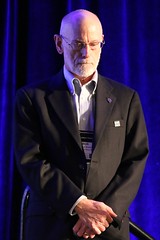

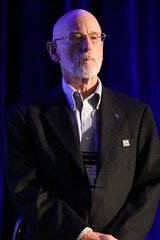
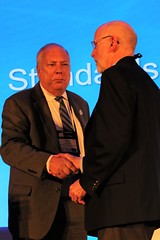
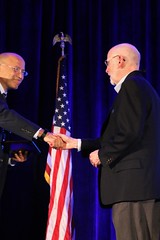
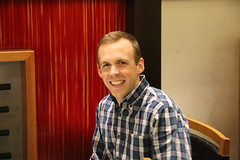
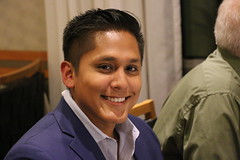
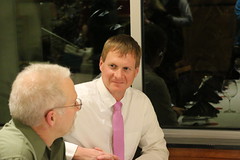
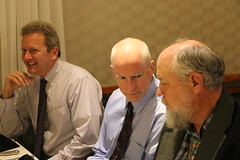
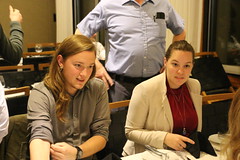
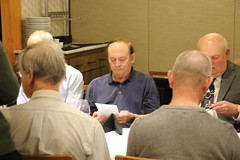
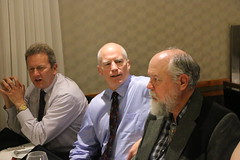
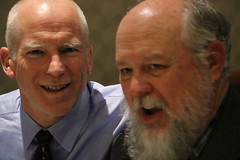
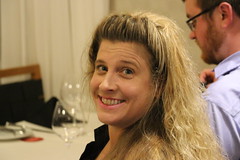
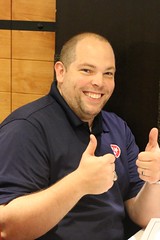

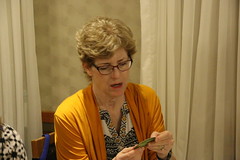
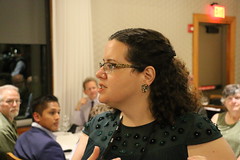
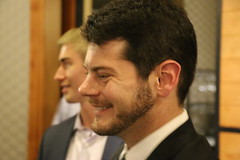
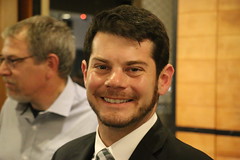
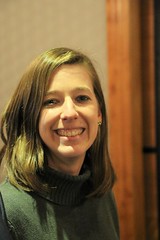
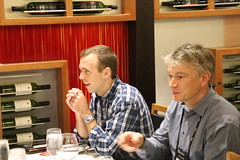
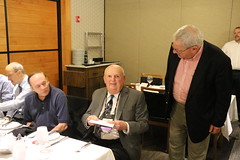
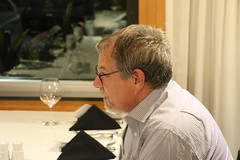
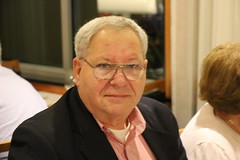
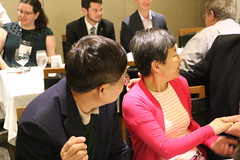
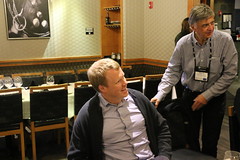
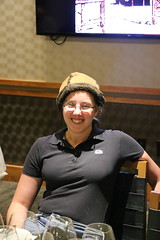
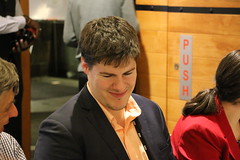
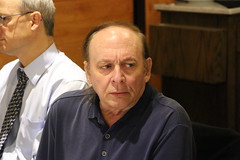
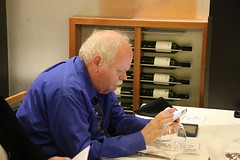
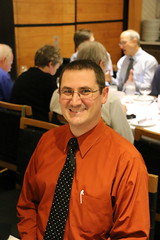
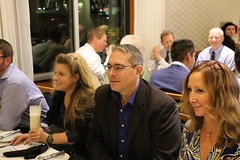
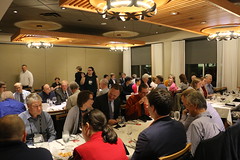
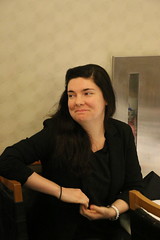
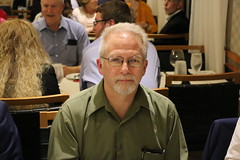
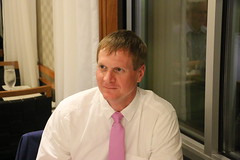
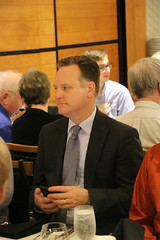
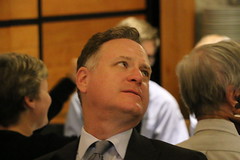
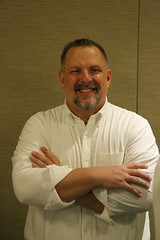
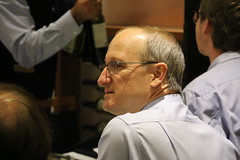
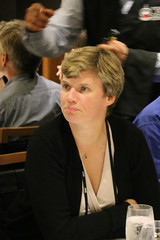
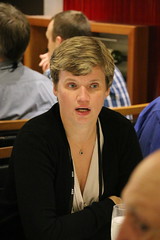
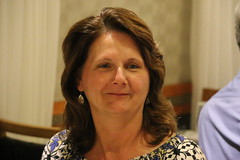
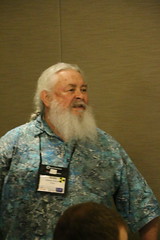
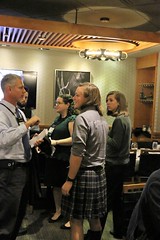
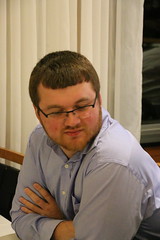
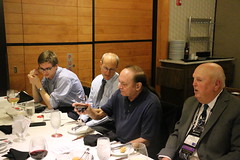
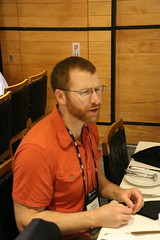
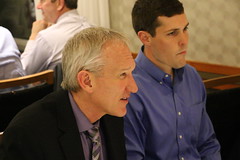
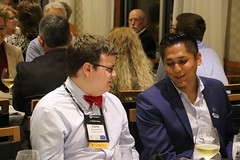
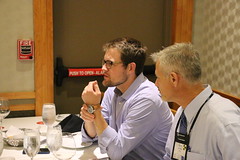
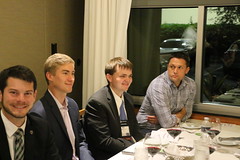
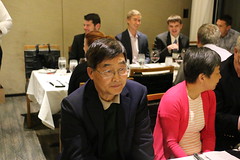
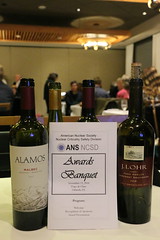
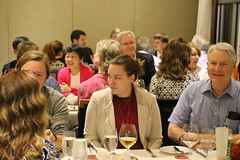
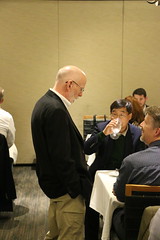
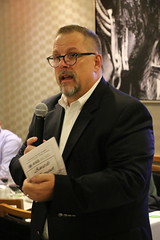
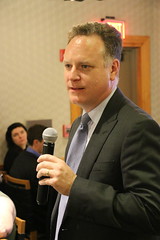
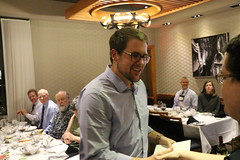
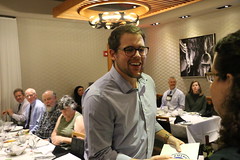
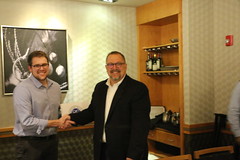
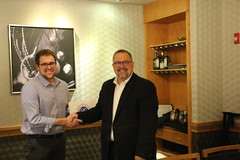
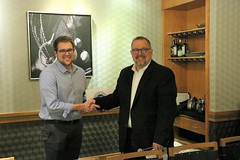
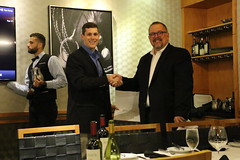
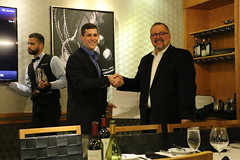
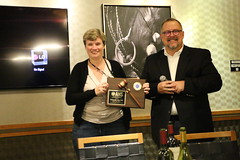
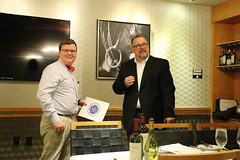
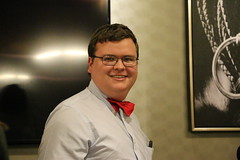
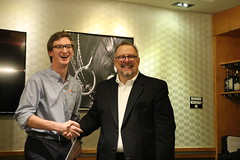
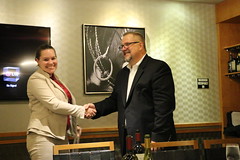
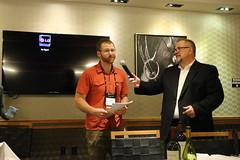
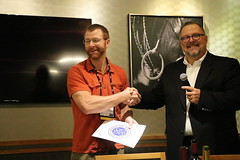
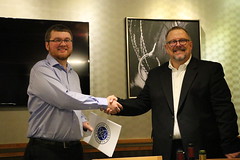
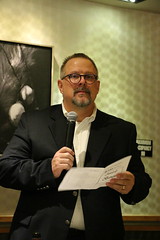
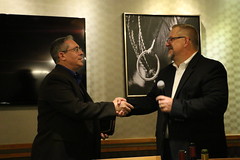
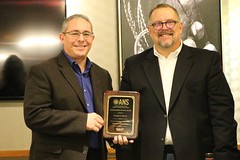
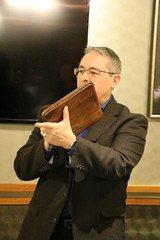
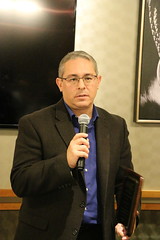
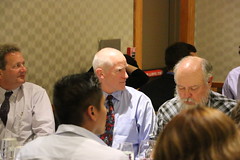
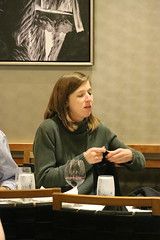
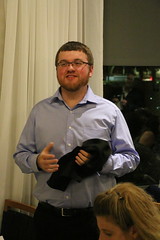
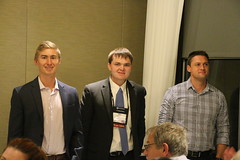
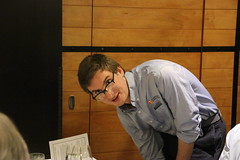
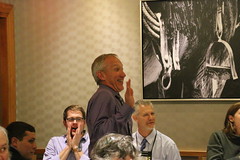
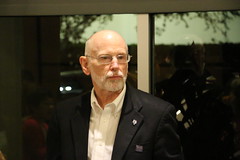
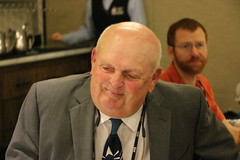
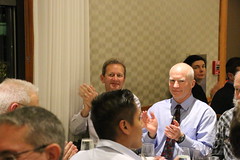
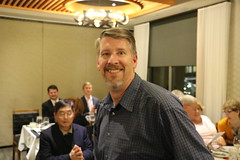
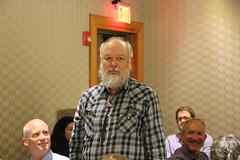
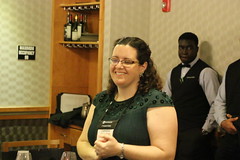
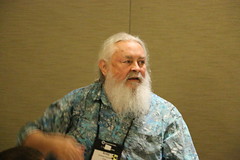
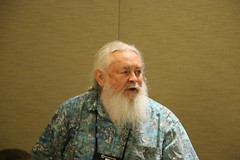
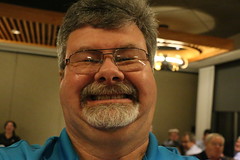
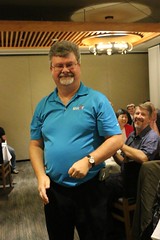
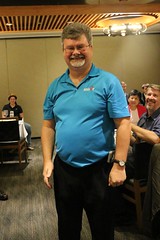
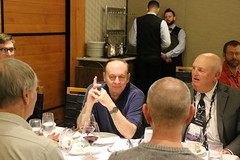
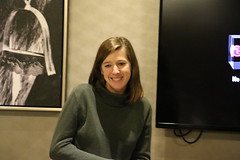
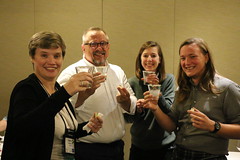
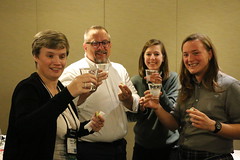
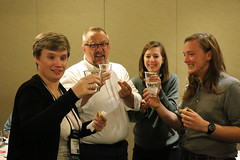
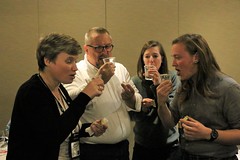
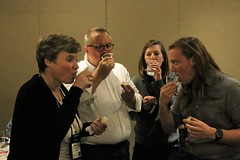
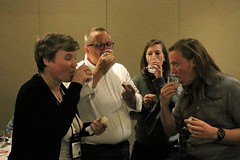
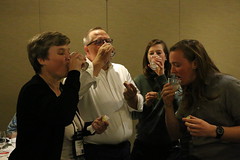
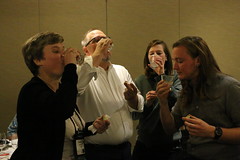
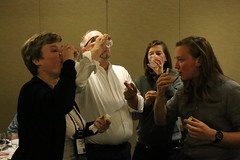
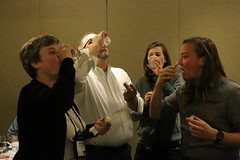
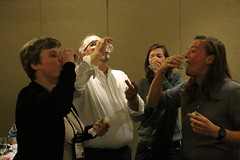
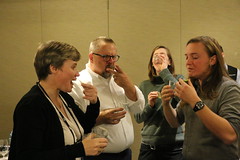
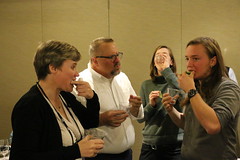
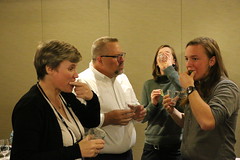
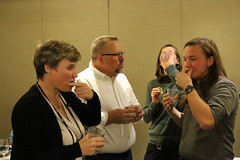
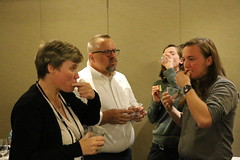
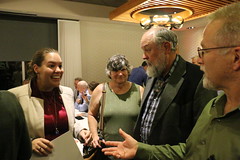
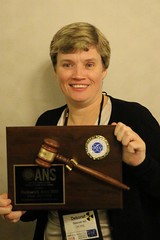
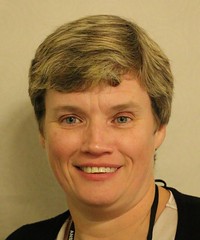
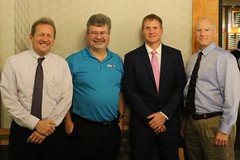
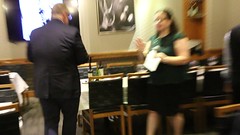
The NCSD’s Second Annual Criticality Safety Design Competition was held during the 2018 ANS Winter Meeting at Orlando.
Many students and young members participated in this competition and gained first hand experience on the types of problems criticality safety practitioner faces.
The awards this year (including bragging rights) are $150 amazon gift cards for first place, and Amazon Echo for second place. In addition, all participants were invited to the NCSD award dinner ($90 value).
UnderGrad: 1st Place: Robert Corrigan from University Tennessee
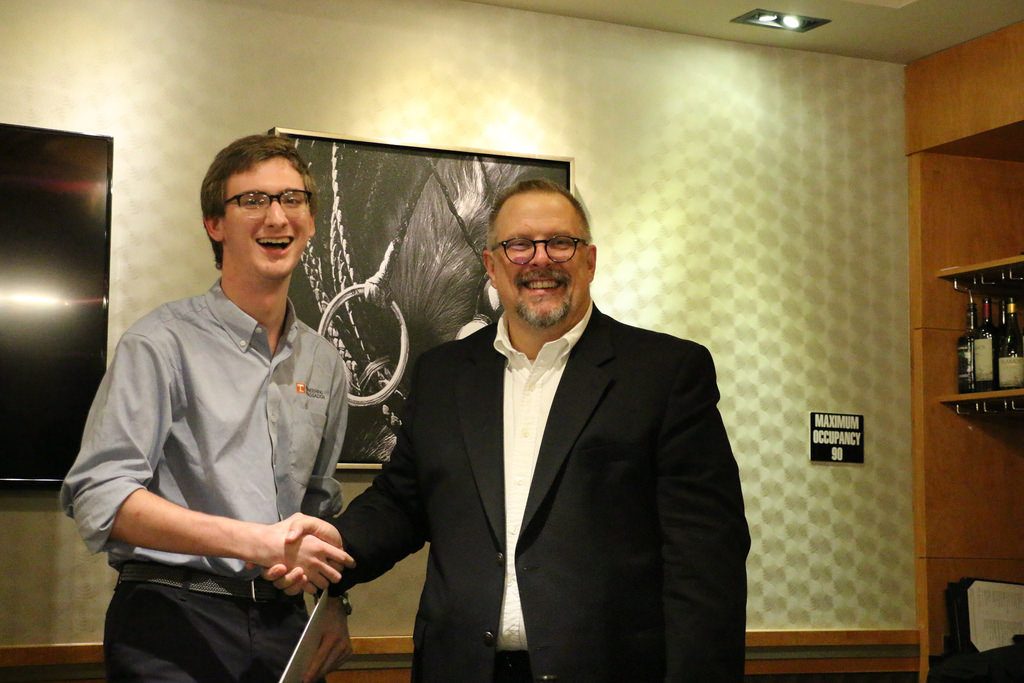
UnderGrad: 2nd Place: Charles Goodman IV from NC State University
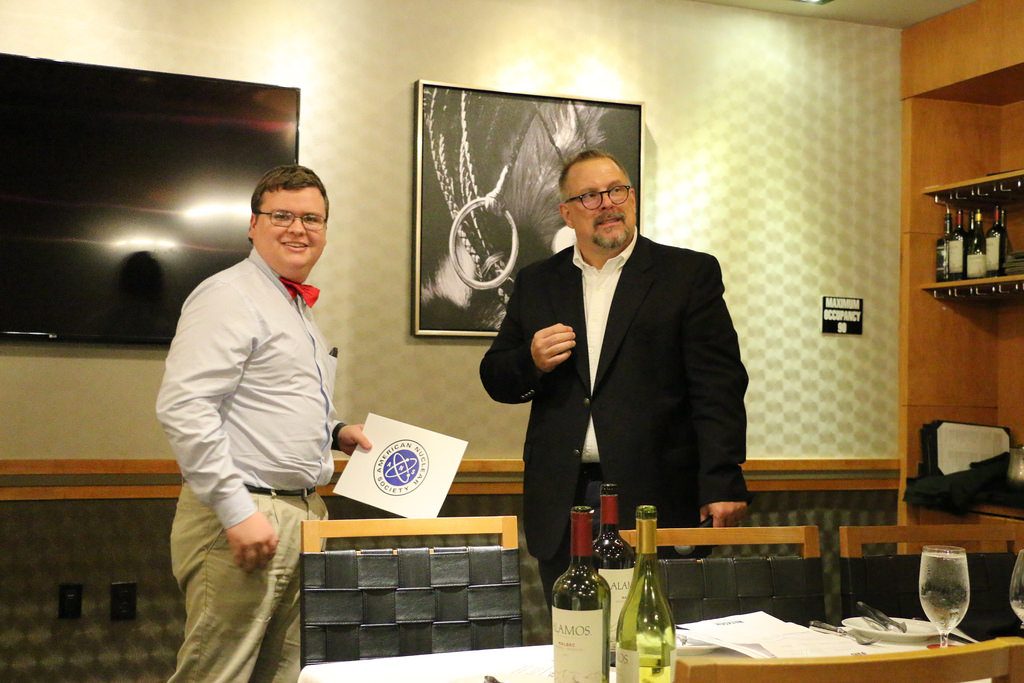
No able to attend the Dinner:
UnderGrad: 3rd Place: Zachary Deziel
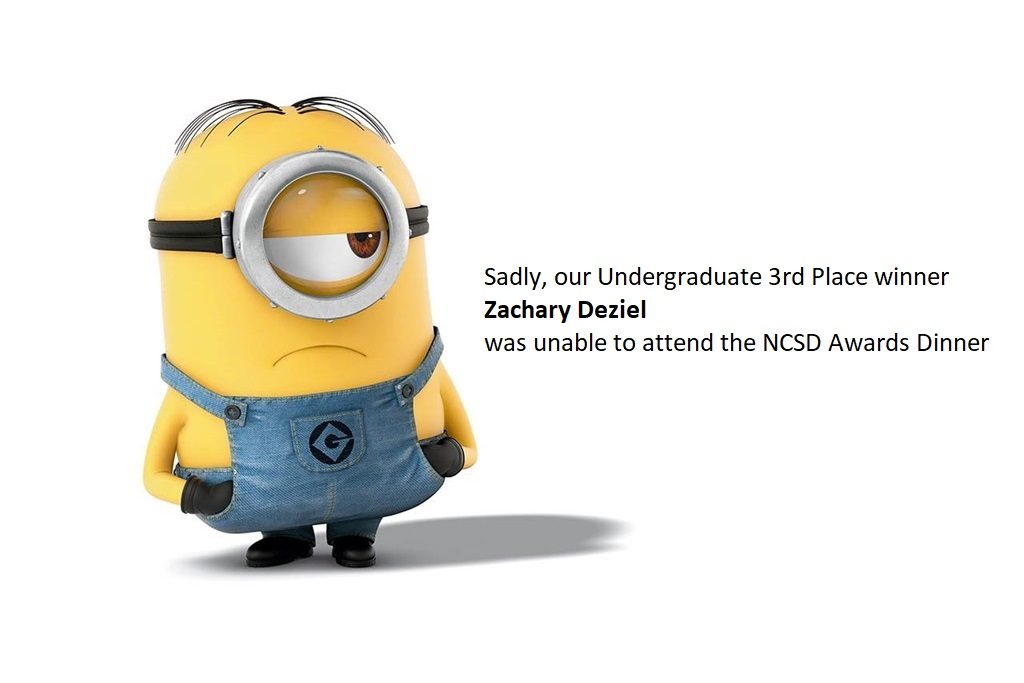
Graduate/YMG: 1st Place: Ethan Reisker from SRS
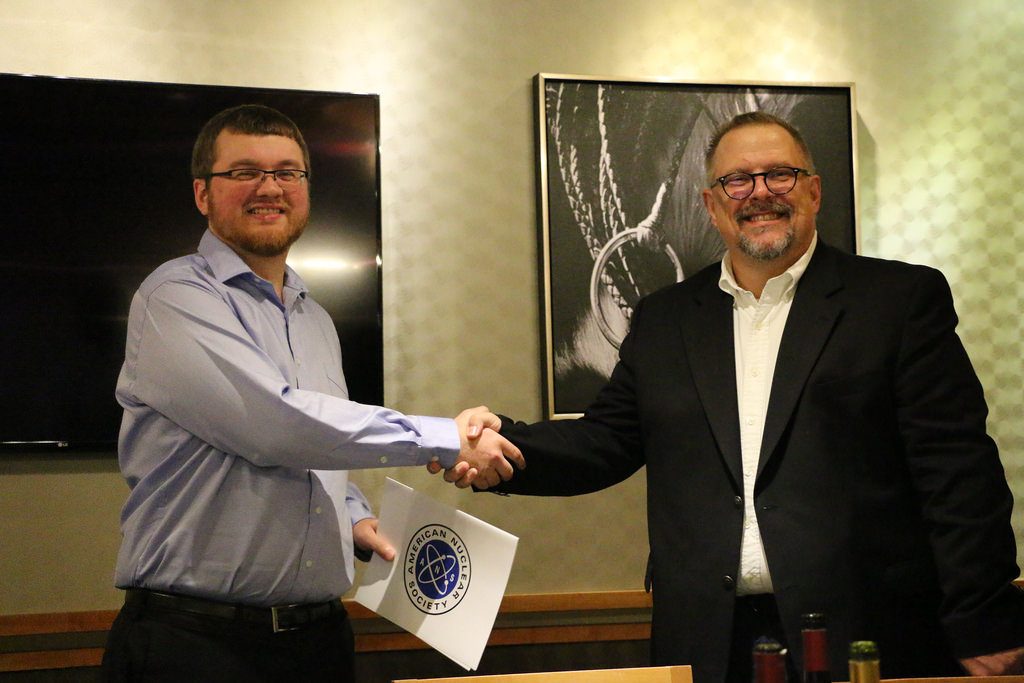
Graduate/YMG: 2nd Place: Cliff Ghiglieri from Colorado School of Mines
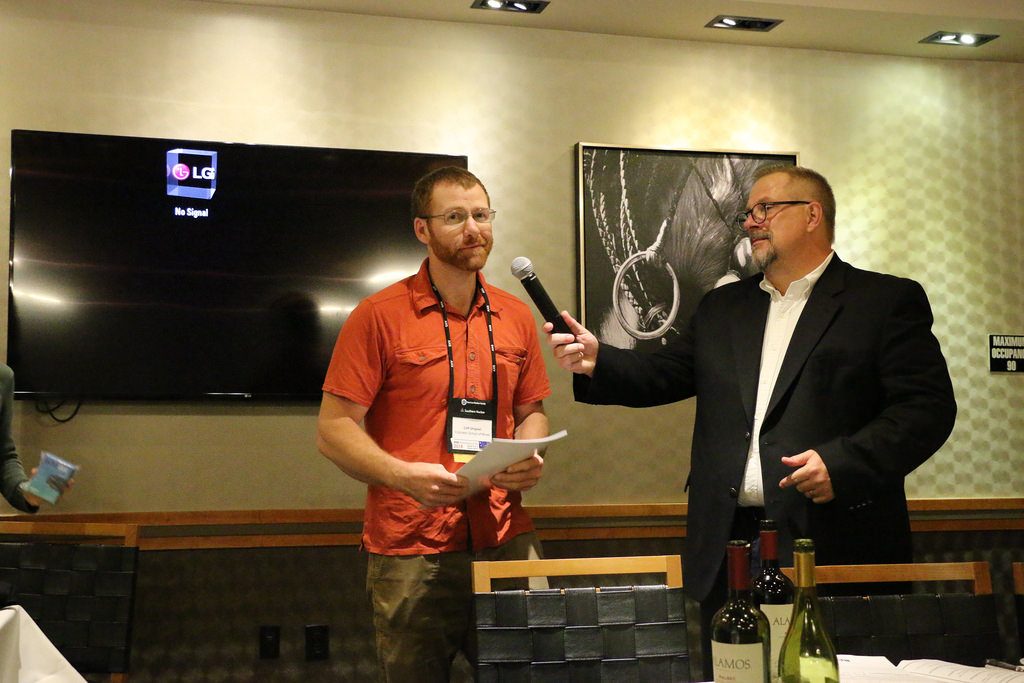
Graduate/YMG: 3rd Place: Kristin Smith from Texas A&M/LANL
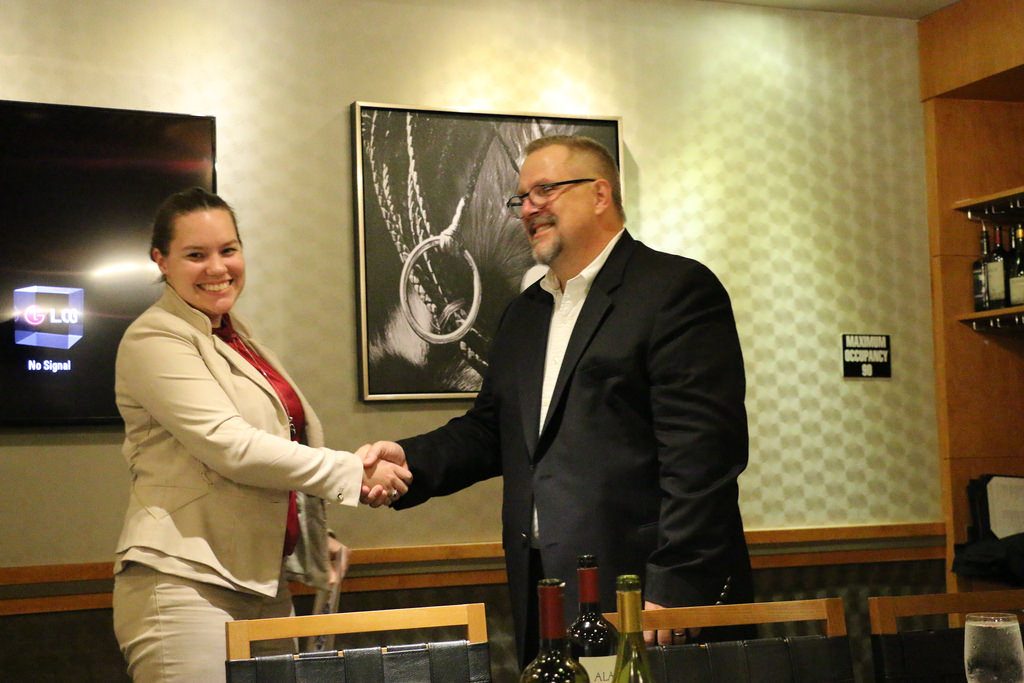
It seems like the NCSD Design Competition is well received and many participants had fun while learning more about what it is like being a criticality safety practitioner. Stay tuned, maybe we’ll have another one next year!

